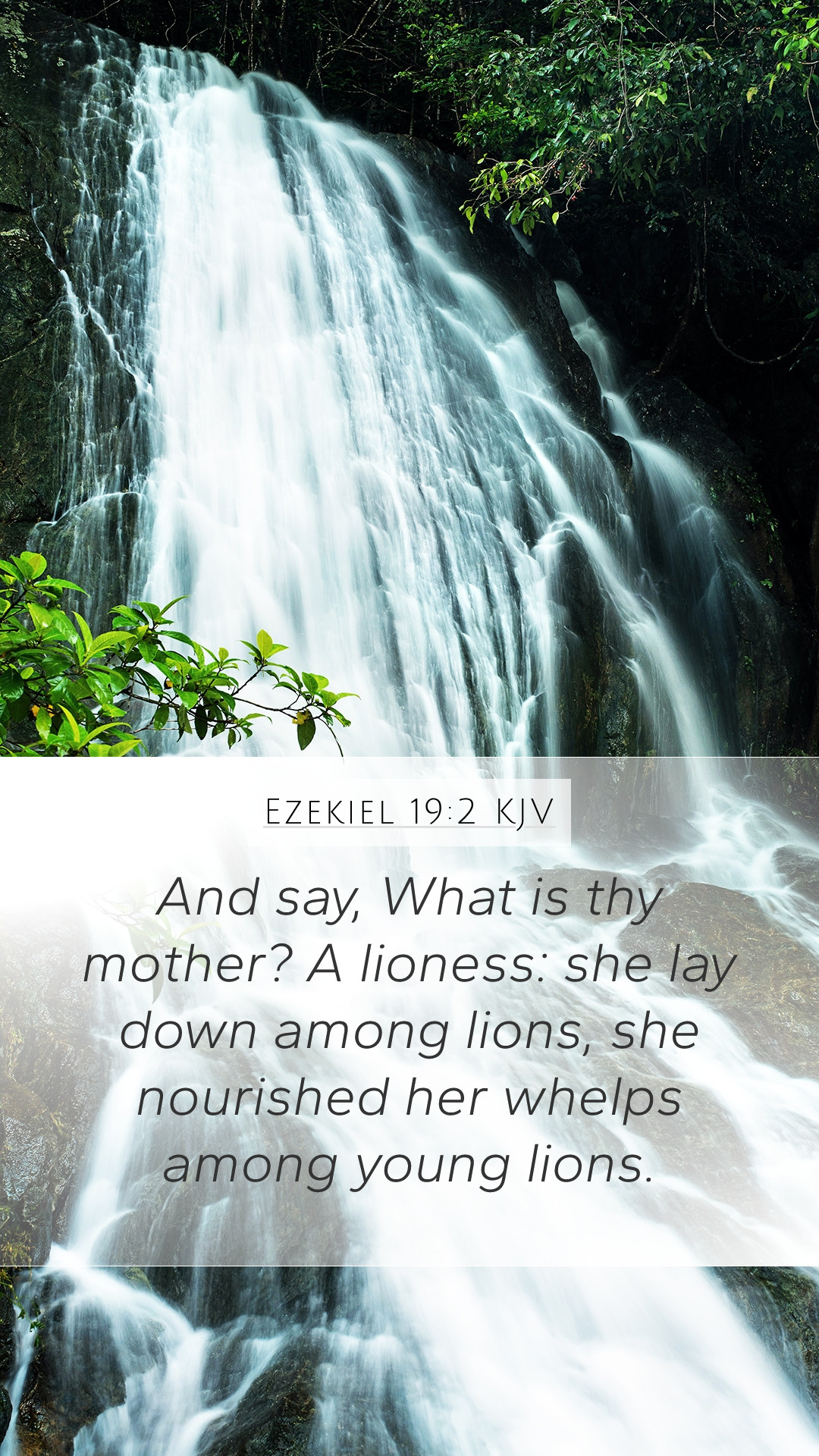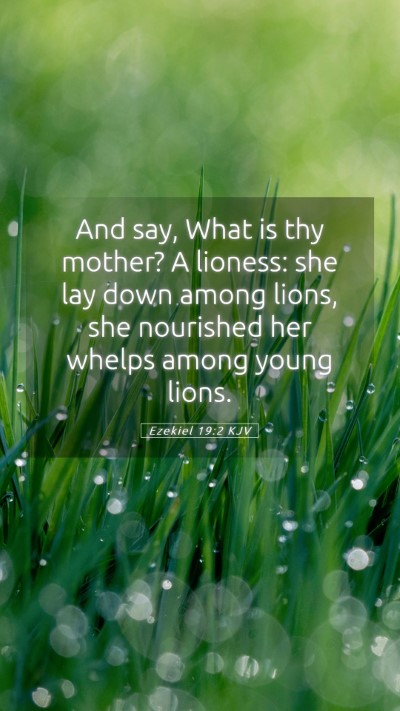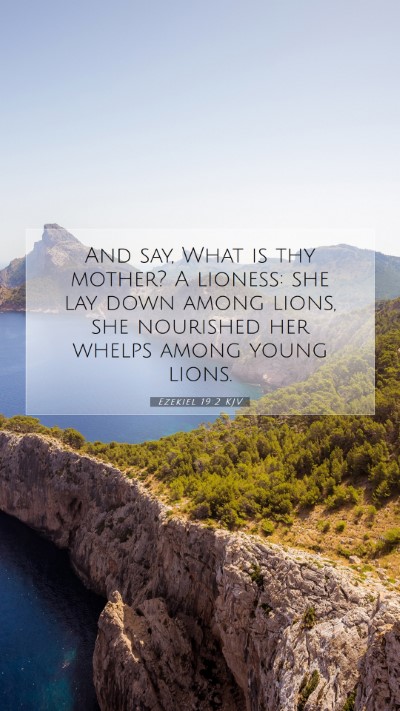Ezekiel 19:2 - A Deep Dive into Its Meaning
The verse Ezekiel 19:2 presents profound imagery and symbolism, capturing the essence of Israel's leadership, royals, and the divine lament concerning their downfall. The prophet Ezekiel portrays a mourning cry, articulating both the fragility of leadership and the sorrow for a nation led astray.
Verse Context and Structure
This verse is part of a larger poem that employs the metaphor of a lioness and her cubs to describe the kings and people of Israel. This poetic form is typical of Hebrew literature, where nature and animals symbolize broader spiritual truths.
Key Themes and Insights
- Symbolism of the Lion: The lioness represents strength and majesty, which correlates with the leadership of Israel. The cubs symbolize the rising leaders and their eventual downfall.
- Divine Lament: The language conveys a deep sorrow from God over the fate of His people, indicating that true leadership should be invested with responsibility towards God's covenant.
- Judgment and Consequence: The verse serves as a stark reminder of the consequences of unfaithfulness to God, both for leaders and for the people they guide.
Commentaries on Ezekiel 19:2
In examining the interpretations of noted Biblical scholars such as Matthew Henry, Albert Barnes, and Adam Clarke, we uncover layered meanings of this passage.
Matthew Henry's Commentary Insights
Henry suggests that this passage conveys God's deep feelings regarding the fall of Israel's kings. He emphasizes the grief of the Lord over the leaders who failed to guide their people righteously, highlighting the importance of divine guidance and wisdom in leadership.
Albert Barnes' Commentary Insights
Barnes focuses on the specific implications of the animal imagery, explaining that the lioness symbolizes the strength of Israel in its prime, while the cubs denote the subsequent young kings who lacked the integrity to maintain their legacy. This eloquent parallel reveals the transient nature of power and glory.
Adam Clarke's Commentary Insights
Clarke elaborates on the context surrounding leadership in Israel, discussing how the power dynamics and moral failures led the nation toward ruin. He interprets the lioness and the cubs as symbolic of not only physical might but spiritual leadership, where failures in character led to decay.
Applications and Reflections
For individuals seeking to apply the teachings of this verse to their daily lives, consider the following points:
- Evaluate Leadership: Reflect on the qualities that make for good leadership in spiritual, personal, and community contexts.
- Recognize Responsibility: Understand the weight of influence and the responsibility accompanying positions of power.
- Seek Divine Guidance: Prioritize prayer and discernment when making decisions that affect others.
Related Cross References
- Ezekiel 18:30 - Call to repentance and turning from sin
- Jeremiah 22:1-30 - Judgment against Jehoiakim and royal lineage
- Isaiah 31:4 - God as a lion defending His flock
Conclusion
Ezekiel 19:2 invites deep reflection on the nature of leadership, accountability, and divine lament. Through careful study and understanding of this verse, one can appreciate the intricate balance between power and responsibility within the context of biblical history and apply these lessons today.


